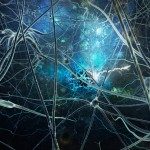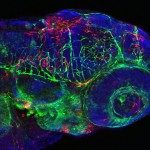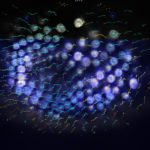Link to Pubmed [PMID] – 21868367
Link to DOI – 10.1242/jcs.082792
J Cell Sci 2011 Sep; 124(Pt 18): 3053-9
The early control of potentially invading microbes by our immune system primarily depends on its main professional phagocytes – macrophages and neutrophils. Although the different functions of these two cell types have been extensively studied, little is known about their respective contributions to the initial control of invading microorganisms before the onset of adaptive immune responses. The naturally translucent zebrafish larva has recently emerged as a powerful model vertebrate in which to visualise the dynamic interactions between leukocytes and microbes in vivo. Using high-resolution live imaging, we found that whereas macrophages efficiently engulf bacteria from blood or fluid-filled body cavities, neutrophils barely do so. By contrast, neutrophils very efficiently sweep up surface-associated, but not fluid-borne, bacteria. Thus the physical presentation of unopsonised microbes is a crucial determinant of neutrophil phagocytic ability. Neutrophils engulf microbes only as they move over them, in a ‘vacuum-cleaner’ type of behaviour. This context-dependent nature of phagocytosis by neutrophils should be of particular relevance to human infectious diseases, especially for the early phase of encounter with microbes new to the host.





